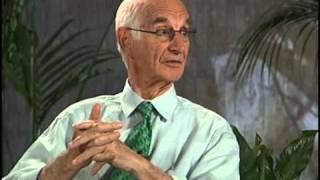Psychology for Lawyers |
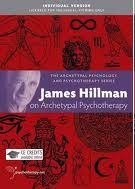 |
James Hillman on Archetypal Psychotherapy [DVD, 1:06:00 mins.]
[For preview of the Hillman DVD: James Hillman on Psychology and Soul [7:40 mins.] [Critical comments on the state of psychology as a discipline] |
Alternative Class Viewing
![]()
![]() Class Viewing 1:James Hillman, "The Art, Practice
and Philosophy of Psychology" [DVD, Dk.1] [Two
disk DVD is available in the Law School Library.] [View Dk.1 from beginning
to 56:00 mins.; and 1:21:40 to 1:34:22 mins.]
Class Viewing 1:James Hillman, "The Art, Practice
and Philosophy of Psychology" [DVD, Dk.1] [Two
disk DVD is available in the Law School Library.] [View Dk.1 from beginning
to 56:00 mins.; and 1:21:40 to 1:34:22 mins.]
![]() Class Viewing 2: An
Introduction to Depth Psychology [21:34 mins.]
[the brief summary of Hillman's archetypal psychology runs from 14:33
mins. to 15:50 mins.]
Class Viewing 2: An
Introduction to Depth Psychology [21:34 mins.]
[the brief summary of Hillman's archetypal psychology runs from 14:33
mins. to 15:50 mins.]
Class Viewing 3: James Hillman on Archetypes [2:59 mins.] [end at 2:11 mins.] [explaining the collective nature of archetypes; relating archetypes to symptoms]
Notes
![]()
James Hillman, "Peaks and Vales: The Soul/Spirit Distinction as Basis for the Difference between Psychotherapy and Spiritual Discipline," in Jacob Needleman & Dennis Lewis, On the Way to Self Knowledge 114-141 (New York: Alfred A. Knopf, 1976):
"[Psyche is] the realm of images and the power of imagination . . . ." [114-115]
"Because our tradition has systematically turned against soul . . . [t]his has led eventually to a psychological disorientation . . . ." [115]
"The hatred of the image, the fear of its power, and of the imagination, is very old and very deep in our culture." [116]
"I want to remind you of Jung's position, from which I have developed mine. Jung's psychology is based on soul." [117]. "So, Jung said, if you are in search of soul, go first to your fantasy images, for that is how the psyche presents itself directly. All consciousness depends upon fantasy images. All we know about the world, about the mind, the body, about anything whatsoever . . . [including] the nature of the divine, comes through images and is organized by fantasies into one pattern or another. . . . Because these patterns are archetypal, we are always in one or another archetypal configuration, one or another fantasy, including the fantasy of soul . . . . 'The 'collective unconscious,' which embraces the archetypes, means our unconsciousness of the collective fantasy that is dominating our viewpoints, ideas, behaviors, by means of the archetypes.
Let me continue for just a moment with Jung . . . who says, 'Every psychic process is an image and an imagining.' The only knowledge we have that is immediate and direct is knowledge of these psychic images." [118]
"We are always in one or another root-metaphor, archetypal fantasy, mythic, perspective." [119]
"[T]he archetypal question is . . . who among the variety of figures of which we are each composed, which archetypal figure or person, is in this happening? What God is at work in calling us up the mountain or in holding us to the vales? For archetypal psychology, there is a God in every perspective, in every position. All things are determined by psychic images . . . . All things present themselves to consciousness in the shapings of one or another divine perspective. Our vision is mimetic to one or another of the Gods." [128]
"Without this archetypal component affecting our lives, there would be no spiritual drive, no new sparks, no going beyond the given, no grandeur and sense of personal destiny." [129]
"I want to suggest now three fundamental qualities of soul-making . . . . These three are: (1) Pathologizing--an interest in the psychopathologies of our lives--that is, an attentive concern to the logos of the pathos of the psyche. . . . (2) Anima--a loyalty to the clouded moods at the water sources, to the seductive twists and turns of the interior feminine figures who personify the labyrinthine path of psychic life, those nymphs, dark witches, lost cinderellas, and persephones of destruction, and the elusive, illusional fantasies that anima creates, the images of soul in the soul. (3) Polytheism--single-minded commitment to discord and cacophony, to variety and not getting it all together, to falling apart, the multiplicity of the ten thousand things, to the peripheries and their tangents (rather than centers), to the episodic, occasion, wandering movement of the soul . . . and its compulsion to repeat in the valleys of its errors, and the necessity of errancy and error for discovering the many ways of many Gods." [134-135]
Reference (James Hillman)
![]()
Opening
the Door to What Comes in the Night
[1:58 mins.] [a clip from
"DreamTending," James Hillman, Marion Woodman, and Robert Johnson
talk about dreams and the unconscious]
On Myth
[9:37 mins.] ["[T]he Gods are indeed present . . ."] Pt2
[9:15 mins.]
Myth and the World
Around Us
[9:37 mins.] Pt2
[9:14 mins.] Pt3
[9:37 mins.]
Interview:
The Soulless Society
[1:28 mins.] [on initiation and becoming an elder]
James Hillman Interview on the 1993 release of We've Had a Hundred Years of Psychotherapy--And the World's Getting Worse [28:55 mins.] [audio]
On Calling
[4:20 mins.] [audio with visuals] [Hillman talks about character, symptom,
soul, daimon; being a critic of psychology; psychology's need
of more "mystery, beauty, myth, and all the good stuff"]
What
Is Your Calling? Your Fate?
[4:19 mins.] [James Hillman narration of film
montague]
On
Character
[1:25:45 mins.] [Jeffrey Mishlove's Thinking Allowed interview begins
at 1:14:32 mins. and ends at 1:25:45 mins.]
Being
a Political Animal
[1:09 mins.]
Accentuate the
Positive: Reclaiming the Country from the Nation
[25:57 mins.] [speech at the 2006 Bioneers National
Conference] [alt. site]
On Changing the
Object of Our Desire
[49:09 mins.] [interview conducted in 2006] [Hillman
talks about psyche and psyche in the world (anima mundi) at 24:00 mins.
to 26:48 mins.]
Capitalism
[0:43 mins]
The
Mystery of War
[1:02 mins.] Pt2
[0:57 mins.]
"Senex & Puer"
[2:57 mins.] [James Hillman gave a two-day seminar
April 16-18, 2010, in California on the topic of the Senex & Puer
archetypes]
On Fidelity
[3:56 mins.]
On the Recovery
of the Puer
[3:04 mins.]
Reading
Rumi
[1:19 mins.]
On the Pacifica
Graduate Institute
[10:31 mins.]
A Collection
of Hillman Videos
[1:25:45 mins.] [class presentation ends
at 32:58 mins.] [a short version of the presentation ends at 2:14 mins.
and skips to 15:20 mins. and ends at 23:56 mins.]
Carl Gustav Jung
& the Red Book
[2:29:34 mins.] [presentations at the Library of
Congress] [a presentation by Sonu Shamdasani begins at 16:28 mins. into
the video] [James Hillman's presentation begins at 1:08:35 mins.]
Pt2 [2:40:22
mins.] [poor quality video] [a
better quality presentation of Hillman's talk]
Pink Madness:
Why Does Aphrodite Drive Us Crazy with Pornography?
[1:03:14 mins.] [audio]
Reference (James Hillman) (Audio)
![]()
James Hillman:
In Defense of Carl Jung
[7:13:45 mins.] [audio] [Hillman's comments on
the attacks on Jung begins at 1:18 mins. to 12:20 mins.; commenting
on the spread of Jung's ideas at 14:40 mins.; the quantity of Jung's
work, at 17:40 mins.; Jung was a complex person, at 21:36 mins.; Jung's
contribution at 27:21 mins.]
Why Study Greek
Mythology
[1:53:43 mins.]
Interview: On the 1993 Release of We've Had a Hundred Years of Psychotherapy--And the World's Getting Worse [56:36 mins.]
Myths of the
Family
[1:38:51 mins.]
The Roots of
Imagination
[32:09 mins.]
Abandoning the
Child
[32:02 mins.]
Alchemical Psychology
[1:40:13 mins.]
The Character
of Waking at Night
[34:30 mins.] [Minnesota Men's Conference] [1999]
Power Through
the Prism
[58:02 mins.] [Minnesota Men's Conference] [1988]
Fathering the
Boy Inside
[56:36 mins.] [Minnesota Men's Conference] [1988]
Reference (Lectures on/about James Hillman)(Videos)
![]()
The
Life and Ideas of James Hillman
[2:00:34 mins.] [Dick Russell, author of an biography
of Hillman] [lecture begins at 6:00 mins.]
Susan Rowland:
C.G. Jung's Dramatic and Imaginative Writing
[1:29:25 mins.] [begin presentation at 4:40 mins.; end at 1 hr. 10 mins]
[effective length of the video is 1 hr. 7 mins.] [this might be a place
to begin a study of Jung, allowing us to reflect on how to read Jung
as we undertake to start reading his work]
Richard Tarnas
Lectures on James Hillman's Archetypal Psychology
[1 hr. 10 mins.] [January 27, 2012] [Lecture given
just two months after James Hillman's death at age 85] [Introductory
course on the ideas of James Hillman, the principal founder of archetypal
psychology at the California Institute of Integral Studies, San Francisco,
California] Pt2
[1 hr. 22 mins.] [January 27, 2012] Pt3
[1 hr. 19 mins.][January 27, 2012]
Patricia
Berry: Interviewed
[audio, 56:00 mins.]
Michael Lerner
Interviews Patricia Berry
[1:36:38 mins.] Pt2
[1:24:35 mins.]
John David Ebert
Lecture on James Hillman
[audio] [9:51 mins.] Pt2
[9:54 mins.] Pt3
[9:56 mins.] Pt4
[10:01 mins.] Pt5
[9:59 mins.] Pt6
[9:56 mins.]
Reference (Commentary on Hillman & Archetypal Psychology)
![]()
Spiritual Imagination
in the Work of Henry Corbin, CG Jung and James Hillman
[1:09:45 mins.] [audio; interview of Tom Cheetham;
discussion of Hillman, Jung, and archetypal psychology at 4:34 mins.
to 11:02 mins.]
James Hillman
and a Therapy of Ideas
[5:01 mins.] [Pacifica Graduate Institute]
James Hillman
[Wikipedia]
Archetypal
Psychology
[Wikipedia]
Polytheism,
Myth, and Psychology
[Wikipedia]
Remembering
James Hillman: An Enterview with Thomas Moore
[Robert Henderson, Quadrant]
Homage
to James Hillman
[Enrique Pardo]
Archetypal
Psychology and Dreamwork
[Richard Catlett Wilkerson]
Archetypal Psychology
Lecture
[Joseph Coppin, Pacifica Graduate Institute, 2007]
[ Joseph Coppin has been on the faculty at Pacifica since 1996]
Psyche
as Postmodern Condition: The Situation of Metaphor in James Hillman’s
Archetypal Psychology [Rex Olson, Janus
Head]
James
Hollis, The Archetypal Imagination
[College Station, Texas: Texas A & M University Press, 2000]
An
Introduction to Archetypal Psychology
[Richard Catlett Wilkerson]
Critique of Archetypal
Psychology
[Mats L. Winther]
Reading Hillman
![]()
For many readers, James Hillman's work will be heavy-sledding, and I confess that there may be no easy place for the beginner to begin. Some reader's will be tempted to dabble in Hillman's work with Hillman's A Blue Fire: Selected Writings (New York: Harper& Row, 1989)(introduced and edited by Thomas Moore). A better approach might be to start with a work like Hillman's Healing Fiction (Barrytown, New York: Station Hill Press, 1983)(reissued by Spring in 1998).

Following Healing Fiction, an intrepid reader of psychology might then pursue James Hillman's Re-Visioning Psychology (New York: Harper Colophon Books, 1975)(reissued in William Morrow Paperbacks in 1997), by some accounts, Hillman's major work.
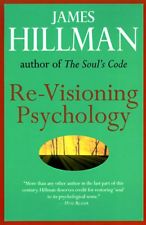
Surviving Re-Visioning Psychology, I would recommend Hillman's Myth of Analysis: Three Essays in Archetypal Psychology (Evanston, Illinois: Northwestern University Press, 1972)(reissued by Perennial in 1992, and Northwestern University Press in 1998).
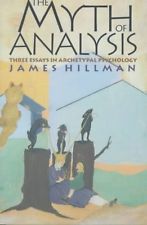
Hillman is quite good in conversation and another way to approach his work is to dial in as Hillman talks to knowledgeable interviewers about his ideas. The two possibilities on this front include James Hillman, Inter Views: Conversations with Laura Pozzo on Psychotherapy, Biography, Love, Soul, Dreams, Work, Imagination, and the State of the Culture (New York: Harper & Row, 1983) (Laura Pozzo is, we learn, a pseudonym) and James Hillman & Michael Ventura, We've Had a Hundred Years of Psychotherapy and the World's Getting Worse (New York: HarperSanFrancisco, 1992).
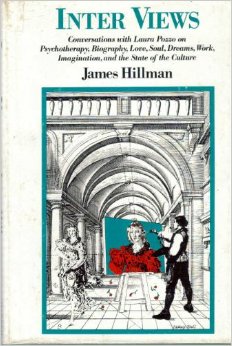 |
 |
Hillman, asking which of his books might be said to be a "particular favorite" or which of his books he would "most want to be remembered," replied: "Different 'me's' have different favorites. As for being remembered for this one or that one, I'd like to think that different kinds of people with different interests in different times in history will turn to this or that book. They reflect different moods and different 'gods.'" [James Hillman in Jan Marlan, "Interview with James Hillman: Past, Present, Future," in Stanton Marlan (ed.), Archetypal Psychologies: Reflections in Honor of James Hillman 45-50, at 49 (New Orleans, Louisiana: Spring Journal Books, 2012)]
Reference (Archetypes and the Collective Unconscious)
![]()
Resources for a Class Assignment: Collective Unconscious
Reference (Analytical Psychology)
![]()
Contributions
to Archetypal Psychology
[1:36:38 mins.] [Patricia Berry] [discussing Jung
and his different ways of talking about archetypes, at 2:32 mins. to
3:50 mins.; comment on the practice of archetypal psychology begins
at 7:00 mins.]
Reference: Videos (Mythology)
![]()
C.G. Jung on the
Insanity of Living Without Myth
[1:02 mins.]
Myth is the Ongoing
Creation
[6:31 mins.] [Michael Meade]
Becoming an Adult
[5:40 mins.] [Joseph Campbell talking about initiation
rituals]
Myth As the Mirror
for the Ego
[4:22 mins.]
Reference: Web Resources (Mythology)
![]()
An Archaeology
of Myth
[James R. Elkins]

